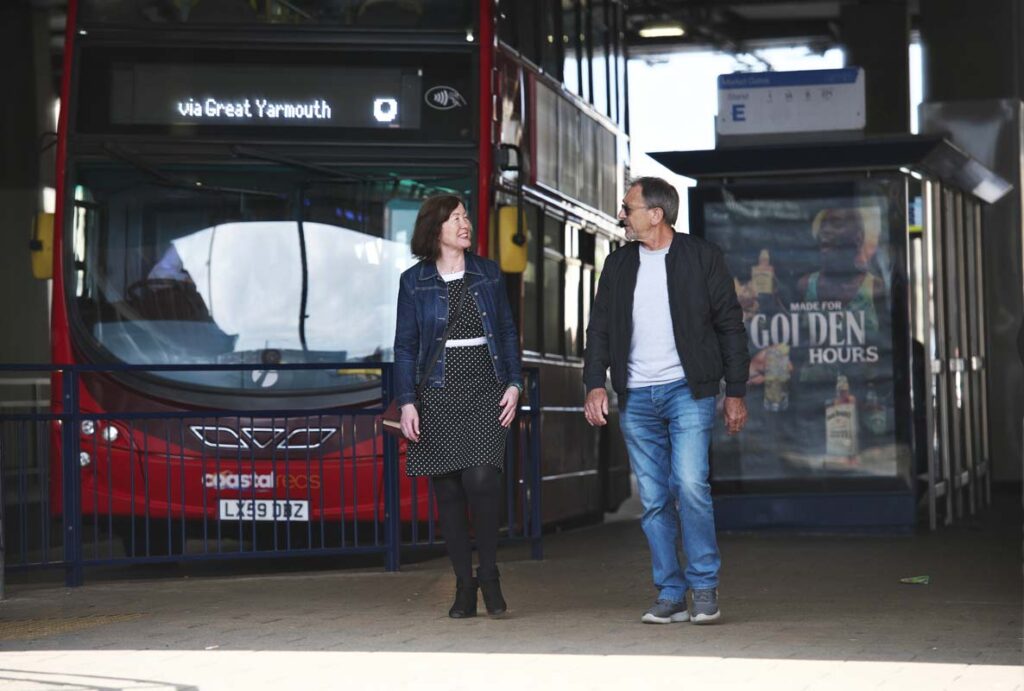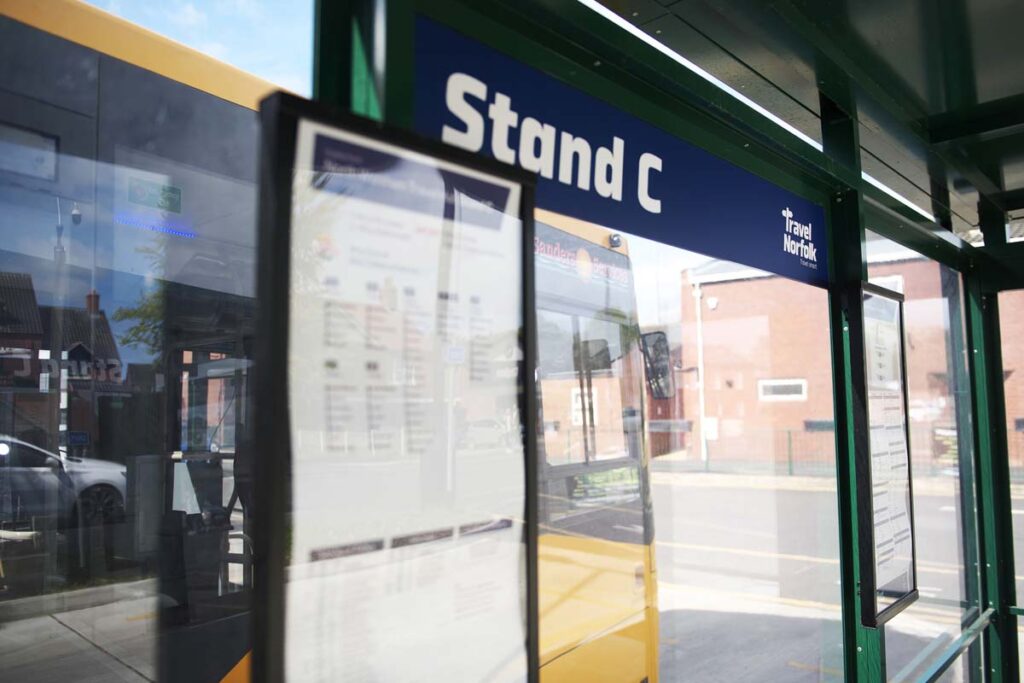–
How we’re improving bus services
Norfolk County Council is committed to improving bus services in Norfolk, and has developed a bus service improvement plan. The aim is to have a public transport network that customers choose first for most journeys over other modes of transport and which offers simple and affordable fares and ticketing.
In March 2022 Norfolk received the sixth highest allocation in the country from the DfT for our Bus Service Improvement Plan and the funding consists of £30.9m of capital funding and £18.6m of revenue funding. Bus Service Improvement Plan here
Continue reading to find out how the money is being spent and the latest updates.
Check out our infographic to discover more about how we’re working to improve the bus services in Norfolk:
Every year Norfolk County Council reviews the contracted bus services to ensure public money is being used in the best way. The aim is to create a transport network that not only meets the diverse needs of our residents but also contributes to a more sustainable Norfolk. By enhancing accessibility and expanding services, we aim to make public transport an even more attractive and reliable choice for the everyone.
Click here to see a list of the service improvements made in 2023

Services
Approximately £12 million of the funding has been allocated to provide new or expanded bus routes and increase service frequencies on key routes, including more evening and weekend services.
So far the following service enhancements have gone live:
3H Town Link service Knectbus – 82 service
Service 3 the North Wootton Circular Lynx 35 and 36 service
Sanders – X55 and 210 service Charcoal Line
Konectbus – 5b and 11a service Konectbus – 512 service
Konectbus – Fab4 service Sanders – X40 service
Travel hubs and bus stops
£9.8 million is being spent on integrated travel hubs and improved stops and waiting areas across the county and includes more real-time information.
There will also be a county-wide review of bus stops with upgrades to improve access for people with disabilities, to provide more real-time information and a programme of works to reduce delays to buses.
Our first Travel Hub opened in North Walsham earlier this year
New or improved travel hubs are proposed for Sheringham, Cromer, Diss and Hunstanton which will provide better waiting areas with real-time information to help to give passengers a better experience as well as being integrated with walking and cycling facilities.
A gold stop is a bus stop which features; a covered waiting area, has an equalities act 2010 compliant boarding point, has a safe crossing and disabled access, is in an area with additional seating and lighting, has cycle parking, a new bus stop flag and both real time information and printed timetables with QR codes.
A travel hub is a recognisable place with an offer of different and connected transport modes supplemented with enhanced facilities and information features to both attract and benefit the traveller. Our first Travel Norfolk Travel Hub is open in North Walsham with more planned for Hunstanton, Sheringham, Cromer and Diss.

What else is the money being spent on?
Bus priority schemes:
£21 million is allocated to bus priority schemes (traffic light priority, bus lanes etc) and route management
The plans outline 17 new measures across the county which give buses priority on the roads. These include new bus lanes in Norwich, King’s Lynn and Great Yarmouth and redesigned junctions across the county.
Fares promotion:
£5.3 million is allocated to fares promotions.
New fares make it even cheaper to park & ride – Travel Norfolk
Bus service improvement plan brings cheaper bus fares to Norfolk – Travel Norfolk
Bus service improvement plan brings ‘flat fares’ to King’s Lynn – Travel Norfolk
